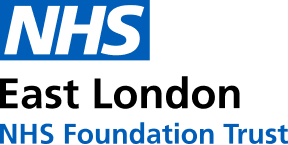IAPT CBT treatment for PTSD following COVID-19-related intensive care admission—A case study (Skillbeck, 2022)
Skilbeck Lilian Byrne Suzanne.
the Cognitive Behaviour Therapist 2022;15 14.
The current case study was conducted as part of the National Health Services and Health Education England implemented IAPT top-up training in trauma-focused cognitive therapy for post-traumatic stress disorder (PTSD). There has been an increase in the number of clients presenting to IAPT with COVID-19 intensive care unit PTSD since the pandemic. However, there are no current unitary guidelines for psychological therapy for this population. Treatment of PTSD using individual trauma-focused cognitive therapy has been shown to be effective for ICU-PTSD. The National Institute for Health and Care Excellence treatment guidelines recommend adapting existing protocols. This study describes how these recommendations were used in the treatment of COVID-19 ICU-PTSD in a 46-year-old male. It illustrates the use of trauma-focused cognitive therapy for PTSD and how ICU trauma memories including hallucinations were conceptualised. It also illustrates how the challenges of co-morbid panic attacks, long COVID and remote working were managed. The client attended 16 individual, 60- to 90-minute video sessions of trauma-focused cognitive therapy, conducted weekly via Microsoft Teams over a period of five months. The treatment plan was conducted in collaboration with the client’s general practitioner, physiotherapists, cardiopulmonary specialists, and his family. Treatment included a timeline, written narrative and imaginal reliving. It also applied stimulus discrimination, behavioural experiments and site visit. At the end of treatment, the client no longer showed clinically important symptoms of PTSD as assessed on the PCL-5 and interview. This was sustained at 3-month follow-up. Key learning aims: It is hoped that the reader will increase their understanding of the following: (1) Delivery of trauma-focused cognitive therapy for ICU-PTSD. (2) Cognitive conceptualisation of the trauma memory including hallucinations. (3) Management of co-morbid symptoms. (PsycInfo Database Record (c) 2022 APA, all rights reserved)
